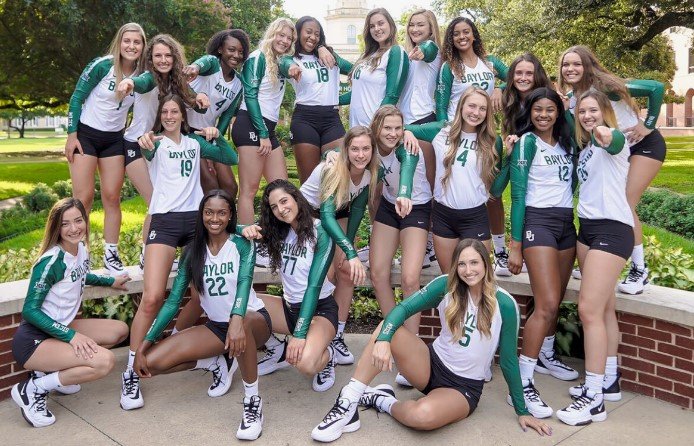In the US, there are 26 women’s colleges, including prestigious institutions like Barnard College, Bryn Mawr College, and Wellesley College. These colleges offer a supportive environment for female and nonbinary students, focusing on empowering and educating women in various fields.
From liberal arts and sciences to nursing, health sciences, business, and education, these institutions provide diverse degree programs tailored to women’s needs and aspirations. With a rich history of promoting women’s education, these colleges play a significant role in shaping future female leaders and professionals.
Additionally, Texas Woman’s University stands out as the largest university system in the US dedicated to women, offering a wide range of academic opportunities for female students.
Women’s Colleges in The US

Table of Contents
History of Women’s Colleges
Historically, women’s colleges have played a crucial role in providing women with access to higher education, empowering them to pursue academic excellence and leadership opportunities.
Early Beginnings
In the early 19th century, women’s colleges emerged as a response to the limited educational opportunities available to women. These institutions were founded with the mission of providing women with a quality education equal to that of men.
Expansion And Evolution
Over the years, women’s colleges in the US have expanded and evolved to offer diverse academic programs and extracurricular opportunities. They have nurtured generations of female leaders in various fields, contributing significantly to the advancement of women in society.
Benefits of Attending Women’s Colleges
When it comes to higher education, women’s colleges in the US offer a unique and empowering experience for female students. These institutions provide a supportive environment that fosters academic excellence and personal growth. Let’s explore the key benefits of attending women’s colleges.
Empowerment And Leadership
Attending a women’s college can empower students to become confident and assertive leaders. These institutions focus on nurturing the leadership skills of women, providing them with opportunities to take on leadership roles in various aspects of campus life. The absence of gender dynamics often found in coeducational settings allows women to fully express themselves and develop their leadership potential without constraints. This environment fosters a sense of empowerment and instills the belief that women can excel in any field they choose, preparing them to become future leaders in their respective professions.
Strong Academic Environment
Women’s colleges offer a strong academic environment that is tailored to the unique learning styles and needs of female students. With smaller class sizes and a focus on personalized attention, these institutions create an environment where women can thrive academically. The absence of gender stereotypes and biases in the classroom allows for open discussions and equitable opportunities for academic success. Additionally, women’s colleges often have a strong network of alumnae who provide mentorship and support, further enhancing the academic experience for current students.
Challenges Faced By Women’s Colleges
Women’s colleges in the US face challenges in promoting inclusivity and adapting to changing educational landscapes. Despite these hurdles, they continue to empower women through specialized programs and a supportive community.
Adapting to Coeducational Trends
Women’s colleges in the US are facing the challenge of adapting to the increasing coeducation trends.
Navigating Gender Stereotypes
Another challenge for women’s colleges is navigating through prevailing gender stereotypes.
Notable Women’s Colleges In The Us
Women’s colleges in the US have a long-standing tradition of empowering and educating women in various fields. These institutions have been at the forefront of promoting gender equality and providing top-notch education. Here are some of the most notable women’s colleges in the US:
Smith College
Smith College, located in Northampton, Massachusetts, is known for its strong focus on liberal arts education. It consistently ranks among the top 10 women’s colleges in the US and offers a wide range of academic programs.
Barnard College
Barnard College, affiliated with Columbia University, is renowned for its academic excellence and commitment to women’s empowerment. Located in New York City, Barnard College is one of the best women’s colleges in the country.
Wellesley College
Wellesley College, situated in Wellesley, Massachusetts, is a prestigious women’s college known for its rigorous academic curriculum and strong emphasis on leadership development. It consistently ranks among the best women’s colleges in the US.

Impact of Women’s Colleges On Society
Women’s colleges in the US empower women to excel in academia and leadership roles, shaping a more inclusive and diverse society. By providing a supportive environment, these institutions foster confidence and skills that contribute to positive societal change.
Women’s colleges in the US play a significant role in shaping society. From fostering women’s advancement to contributing to gender equality, these institutions have a profound impact on the individuals they educate and the broader community.
Fostering Women’s Advancement
Women’s colleges provide an environment where women can thrive academically, professionally, and personally. With tailored programs and supportive communities, these institutions empower women to pursue their ambitions and break through societal barriers. Graduates often go on to achieve leadership positions and make substantial contributions in various fields, driving progress and innovation.
Contribution To Gender Equality
By offering a platform for women to excel without gender-based limitations, women’s colleges actively promote gender equality. These institutions cultivate a culture of inclusivity, challenging traditional norms and fostering a more equitable society. Graduates emerge as advocates for gender parity, driving positive change and inspiring others to pursue their aspirations without constraints. Women’s colleges in the US are instrumental in shaping a future where gender equality is the norm, and women have equal opportunities to thrive and contribute to society. Women’s colleges in the US play a significant role in shaping society. From fostering women’s advancement to contributing to gender equality, these institutions have a profound impact on the individuals they educate and the broader community.
Fostering Women’s Advancement
Women’s colleges provide an environment where women can thrive academically, professionally, and personally. With tailored programs and supportive communities, these institutions empower women to pursue their ambitions and break through societal barriers. Graduates often go on to achieve leadership positions and make substantial contributions in various fields, driving progress and innovation.
Contribution to Gender Equality
By offering a platform for women to excel without gender-based limitations, women’s colleges actively promote gender equality. These institutions cultivate a culture of inclusivity, challenging traditional norms and fostering a more equitable society. Graduates emerge as advocates for gender parity, driving positive change and inspiring others to pursue their aspirations without constraints. Women’s colleges in the US are instrumental in shaping a future where gender equality is the norm, and women have equal opportunities to thrive and contribute to society.
The Future of Women’s Colleges
Adapting to Changing Needs
Women’s colleges are evolving to meet the dynamic demands of the modern world.
Maintaining a Distinctive Identity
Preserving a unique atmosphere that fosters female empowerment and leadership.
Alumnae Achievements
Women’s colleges in the US have a rich history of producing accomplished alumnae who have made significant contributions to various fields. These institutions have empowered and nurtured their graduates, leading to remarkable achievements in leadership roles and notable contributions.
Leadership Roles
Alumnae from the best women’s colleges have excelled in various leadership positions, shaping the landscape of industries and organizations. They have assumed roles as CEOs, policymakers, and influential leaders in government, academia, and the corporate world. Their remarkable leadership skills have made a lasting impact, inspiring future generations of women to pursue their aspirations.

Notable Contributions
Graduates from all-girl colleges near me have made notable contributions in fields such as science, technology, the arts, and social activism. Their groundbreaking research, artistic endeavors, and advocacy work have advanced societal progress and brought about positive change. The impactful contributions of these alumnae have elevated the reputation of women’s colleges in California and across the nation.
Frequently Asked Questions
How many women’s colleges are there in us?
There are currently 26 women’s colleges in the USA. These colleges offer higher education exclusively to female students and are spread throughout the country. Some of the most well-known women’s colleges include Barnard College, Bryn Mawr College, and Wellesley College.
What is the largest women’s university in the U.S.?
Texas Woman’s University (TWU) is the largest women’s university in the US, offering diverse degree programs.
What were the first 3 women’s colleges?
The first three women’s colleges were: Mount Holyoke College, Vassar College, and Wellesley College.
Is Bryn Mawr still all female?
No, Bryn Mawr College is no longer all-female. It has been a co-educational institution since 1984.
Conclusion
Women’s colleges in the US offer unique opportunities for women to receive a quality education in a supportive and empowering environment. From historic institutions like Bryn Mawr College to the largest women’s university system at Texas Woman’s University, there are 26 women’s colleges in the US.
These colleges continue to make strides in promoting gender equality and breaking barriers in male-dominated fields. By attending a women’s college, women can become part of a community that fosters leadership, confidence, and success.

